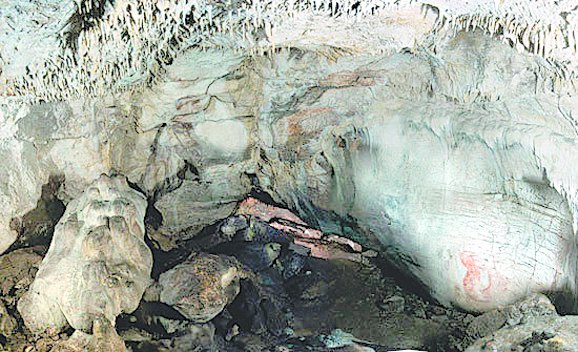
New Delhi, Sept. 8: The inhabitants of a cave in southern Italy may have been the world's earliest people to grind cereal into flour and perhaps cook porridge through multiple-step food processing 32,600 years ago, long before the dawn of farming.
.jpg)
A team of Italian scientists has announced that it had detected evidence for the heating and grinding of oats on a stone pestle-grinder discovered a quarter of century ago in the Paglicci cave in Apulia, a region in southern Italy.
"This is the first archaeological evidence that oats were being processed into flour even before cultivation," Annamaria Ronchitelli, an anthropologist at the University of Siena in Italy and a member of the research team told The Telegraph.
.jpg)
for pictures: Stefano Ricci)
The grinding stone has residues of swollen or partially swollen grains that the scientists believe point to heat treatment of the oat grains before grinding, the researchers said. Heat treatment destabilises the crystal structure of the grains, allows them to absorb water and swell irreversibly. Ronchitelli and her colleagues have described their findings in the journal Proceedings of the National Academy of Sciences.
The researchers had earlier discovered grinding tools with evidence of plant remains and traces of repeated use from other sites in Italy, the Czech Republic, and Russia and dated between 28,000 and 30,000 years ago.
The findings suggest vegetable food processing and production of flour was a common practice across Europe from at least 30,000 years ago. Besides heat treatment prior to grinding, the scientists say, the flour would have been mixed with water and cooked.
"Flour was a component of mobile hunter-gatherers," Ronchitelli said. The inhabitants of Paglicci cave were the most ancient population to use a food processing involving multiple steps to process plants for consumption, the scientists said.
Archaeologists have long believed that farming and cultivation of grain cereals originated about 12,000 years ago in the region of west Asia and Turkey.










